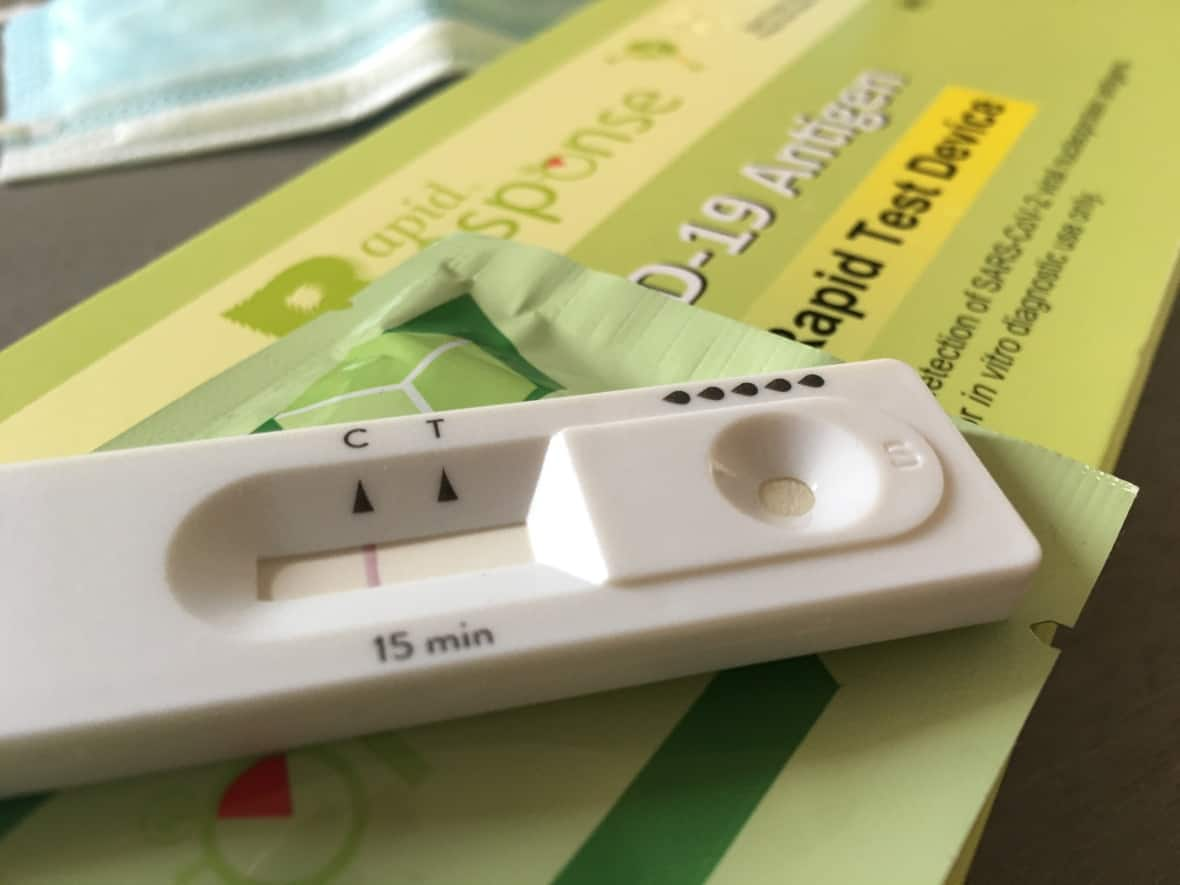Ottawa to stop distributing rapid tests to provinces, territories at end of 2022: PHAC

Ottawa is moving toward ending distribution of COVID-19 rapid tests to the provinces and territories by the end of the year, CBC News has learned, but it will maintain a strategic reserve of the tests.
"As we approach the next phase of our COVID-19 response, we will continue to support provinces and territories by providing rapid tests until December 2022," the Public Health Agency of Canada (PHAC) said in a statement to CBC News.
The decision to end rapid test distribution will be re-assessed before the end of the year, after monitoring the evolving science with COVID-19.
The agency said the federal government will maintain a strategic reserve of 100 million rapid tests "as part of the overall national preparedness strategy."
Fifty million will be set aside for the provinces and territories, and the remaining 50 million will be held to address general surge requirements, PHAC said.
Since October 2020, the federal government has been providing rapid tests to provinces and territories free of charge.
For many Canadians, rapid antigen tests have replaced wide-scale PCR tests; fewer people are now eligible for PCR testing across the country after high demand for testing during the Omicron wave overwhelmed testing centres.
Dr. Theresa Tam, Canada's chief public health officer, said that while rapid tests can play a preventative role, the best defence is wearing masks and physical distancing.
"I think rapid tests can potentially change people's behaviour if they get a positive test, although as we all know, a negative test does not mean you don't have it and that those other measures would also be extremely important to continue," she said.
WATCH | Dr. Theresa Tam talks about COVID-19 rapid test distribution:
Tam also said that while the federal government will end the distribution of rapid tests, "some of the roles and responsibilities are reverting back to the provincial jurisdictions" at this point in the pandemic.
Dr. Stephanie Smith, an infectious disease physician at the University of Alberta Hospital in Edmonton, said the decision to stop distribution of rapid tests to provinces should be coupled with changes in quarantine policies.
Many provinces require those who test positive for COVID-19 to isolate for five days.
"If the public does not have a way of being able to confirm they actually have COVID, I don't think we can expect that people will be able to stay home," she said.
"If we are going to stop a program that provides rapid testing, then we also have to look at, if we don't have rapid testing, what should we be doing with our quarantine policies?"

As for the strategic reserve, Smith said the pandemic revealed it is always best to be prepared, though she noted that rapid tests have become less reliable when it comes to Omicron.
"If the government has a fairly large stockpile of these rapid antigen tests, it certainly makes sense to keep those on reserve — again, in the event that we have a variant the testing is appropriate for and we have surging cases where we actually do need to be able to identify someone with COVID," she said.
The news that Canada will maintain a reserve of rapid tests comes one year after a scathing auditor general's report showed the National Emergency Strategic Stockpile (NESS) was woefully inadequate to respond to a pandemic.
The May 2021 report found that PHAC failed to address "long-standing issues" in how personal protective equipment and other medical devices were managed in the NESS, which was created in part to supply provinces and territories with crucial goods during a crisis like the COVID-19 pandemic.
In response, the federal government promised to improve the emergency stockpile ahead of the next crisis.
Update on procurement and distribution
Meanwhile, the federal government provided an update on the number of rapid tests it purchased and distributed under Bill C-10, which passed in March and gave Health Canada the ability to purchase up to $2.5 billion worth of rapid tests, and distribute them to provinces, territories and Indigenous communities.
A report tabled by Health Minister Jean-Yves Duclos in the House of Commons on Thursday revealed Ottawa spent more than $730 million between March 4 and May 25 of this year to purchase 118.7 million tests during the three-month period.
Approximately 101 million of the tests have been shipped, and roughly 17 million are currently in the federal warehouse reserve.


